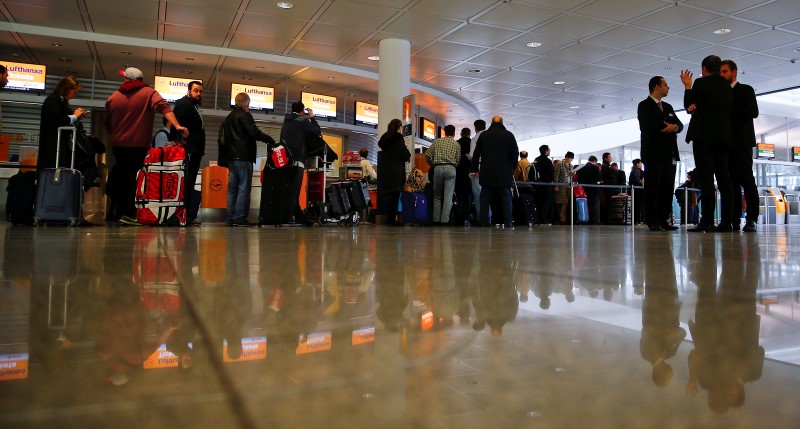BERLIN (Reuters) - A collapse of Europe's 26-nation Schengen zone of passport-free travel would create major congestion and cost larger airports hundreds of millions of euros to redesign terminals, airports association ACI Europe said on Wednesday.
The Schengen zone, which also now counts four non-European Union countries as members, was created more than 30 years ago and airports have as a result designed terminals to have separate Schengen and non-Schengen zones.
The free-travel agreement has come under increasing strain due to the refugee crisis, with several countries imposing temporary border checks in order to stem the flow of people from countries such as Syria.
Olivier Jankovec, director general of ACI Europe, said while it was not on the cards, any moves to reinstate air border controls between Schengen states would have a drastic impact and that restructuring airport facilities could easily cost hundreds of millions of euros for the largest airports.
There are around 443 airports located within the Schengen zone, used by around 1.2 billion people in 2015, said ACI Europe, whose members include Aena, Aeroports de Paris and Fraport.
"The immediate impact would be unprecedented levels of congestion and flight disruptions, with potential spillover effects across the entire European airport network," Jankovec said in a statement.
It would also lead to longer travel times because airports would no longer be able to guarantee connection times between flights, he said. The shortest connections are about 45 minutes at present.

While calling for Schengen to remain intact, ACI Europe also welcomed moves by the European Commission to try to strengthen Schengen's external borders, but said it would require governments to deploy extra police and border staff at airports.